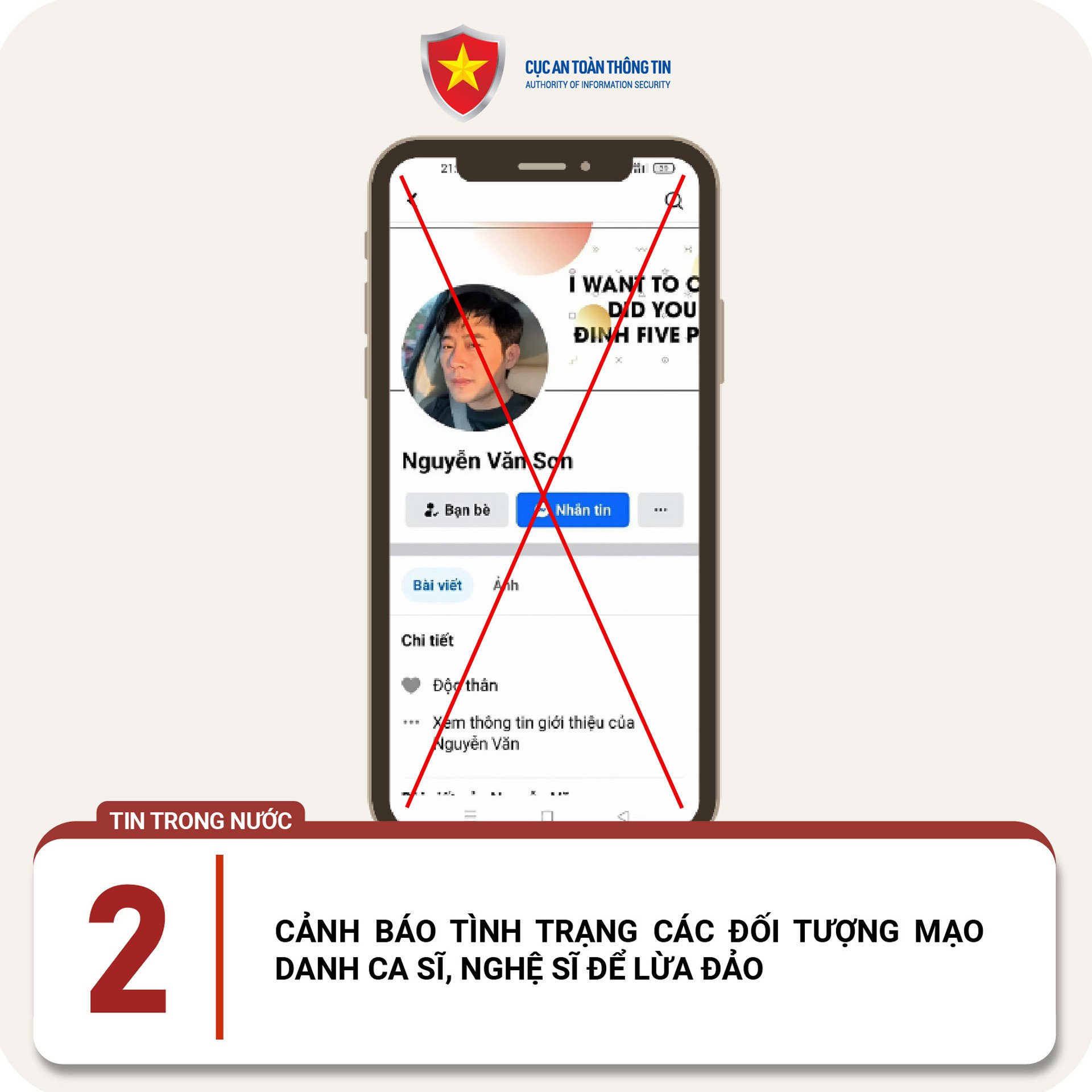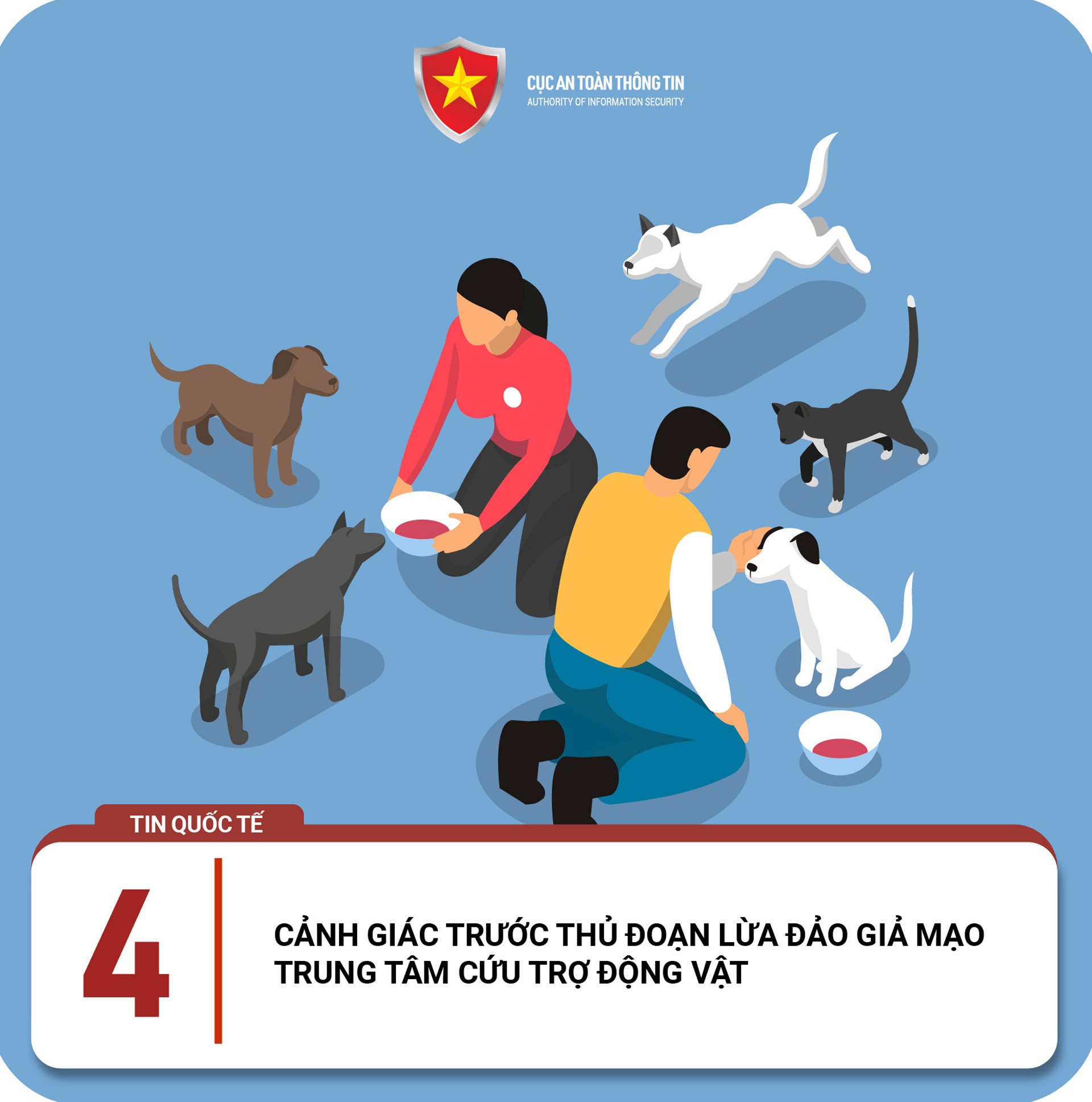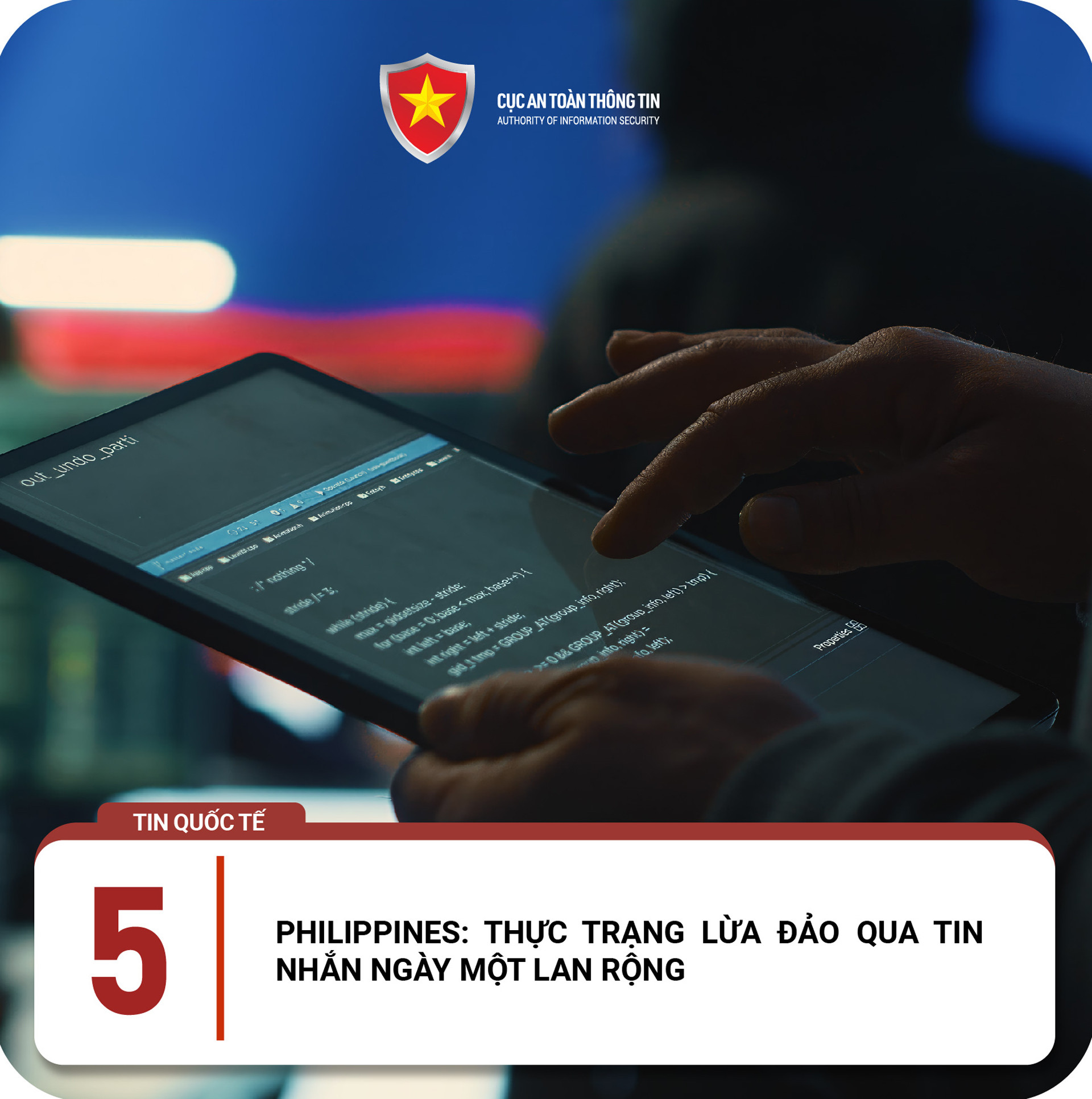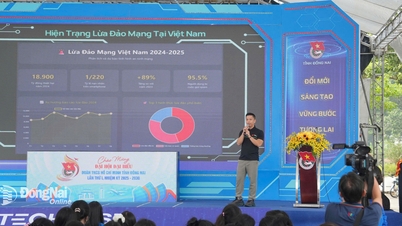Fraudulent appropriation of property by luring people to do paid online tasks or impersonating artists or organizations are not new online fraud methods, but are still causing many people to 'fall into traps'.
Online fraud is a problem in cyberspace. The 'Weekly News' on online fraud from October 14 to October 20 of the Department of Information Security ( Ministry of Information and Communications ) continues to show that although the fraud methods are not new, due to lack of vigilance and self-protection skills, many users are still scammed to have their information stolen and their property appropriated.
Below are 5 new scams warned to users:
Tricks to lure people to watch movies and vote online for a fee
The Hanoi Police have continued to warn about the fraudulent appropriation of property through paying to watch and vote on movies online.

After getting to know the victim through Facebook, the scammer invited them to download the Telegram app to watch and vote for movies online. The first few times, the scammer paid a small amount of money into the victim's account to gain trust. After that, they gave many reasons for the victim to deposit more money and then took possession.
The Information Security Department recommends that people proactively verify the identity of the subject before transferring money; do not share sensitive information; do not access strange links or download applications of unknown origin.
Using AI to impersonate celebrities to scam
The situation of celebrities being impersonated for malicious purposes on social networks is quite common nowadays. The common feature of these impersonating pages is that they often add the word 'official', 'FC' or a fake blue tick next to the artist's name.

Actor Khoi Tran was recently scammed by NVS using his image and creating a fake Facebook account. This subject also used AI to fake his image, voice and make video calls to gain the trust of the victims, thereby tricking them into transferring money.
Noting that people should check the authenticity of information about artists, the Information Security Department also recommends that users do not follow instructions, do not transfer money to strangers; do not access strange links; and do not share bank account numbers, OTP codes, passwords...
Impersonating Google employees to steal gmail accounts
Gmail users have just been warned about a scam where people impersonate Google employees to send messages and call to notify that their accounts have been hacked and need to perform account recovery operations.

Users are advised to carefully check links and email addresses; limit sharing sensitive personal data online; do not access strange links and do not follow instructions from strangers.
In addition, when receiving suspicious messages or calls, users need to immediately block and report to the authorities the email address or phone number suspected of being a scam for verification and prevention.
Fake animal rescue center scam
An animal rescue center in the US has just been targeted by a group of people impersonating social media channels to approach victims who have lost pets in order to steal their property.

In addition to claiming to be 'emergency rescue team' staff to inform the victim's pet that it had an accident and was in critical condition, the subjects also used AI to create images of the victim's pet in a hospital setting, on an operating table, and requested to transfer hospital fees.
Advice for people when encountering the above situation is to stay calm, verify information; do not provide sensitive information, personal data, and do not transfer money without verifying the identity and work unit of the subject.
Sharp increase in text message scams
Update on the increase in text message scams in the Philippines, experts said that these scams mainly involve luring victims into 'easy jobs with high salaries', announcing winning prizes, and inviting them to buy products at great discounts. When they click on fake websites and provide personal data, victims can have their information and accounts stolen.

The Information Security Department recommends that people be cautious with messages inviting them to participate in investments, perform tasks to earn money, announce winning prizes, or sell products at incredibly low prices; do not provide personal information or transfer money without verifying the identity of the subject; and limit sharing personal information and sensitive data online.

Source: https://vietnamnet.vn/canh-bao-5-hinh-thuc-lua-dao-truc-tuyen-pho-bien-tuan-qua-2333797.html





![[Photo] Cutting hills to make way for people to travel on route 14E that suffered landslides](https://vphoto.vietnam.vn/thumb/1200x675/vietnam/resource/IMAGE/2025/11/08/1762599969318_ndo_br_thiet-ke-chua-co-ten-2025-11-08t154639923-png.webp)

































![[Photo] "Ship graveyard" on Xuan Dai Bay](https://vphoto.vietnam.vn/thumb/1200x675/vietnam/resource/IMAGE/2025/11/08/1762577162805_ndo_br_tb5-jpg.webp)







![[Video] Hue Monuments reopen to welcome visitors](https://vphoto.vietnam.vn/thumb/402x226/vietnam/resource/IMAGE/2025/11/05/1762301089171_dung01-05-43-09still013-jpg.webp)
































































Comment (0)